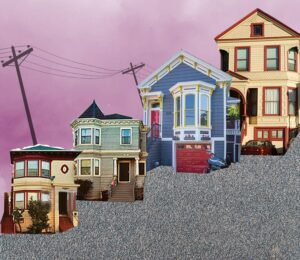Last year, a classmate and I ran into each other in a waiting room. While we waited, we acted like nothing was happening, except for a weak exchange of smiles. Afterwards, the incident was never mentioned. The only thing left was a feeling of supreme awkwardness.
This accidental meeting of mine happened while I waited for my (then) weekly therapy session. The summer before, I’d fallen into a depression, and things still needed work. But that’s not why this memory stands out so clearly. For me, the whole thing was really quite…strange. Because by then, I’d thought I was done with the embarrassment from my situation. And really, what reason did we have to be embarrassed? In a sense, that memory highlights the idea of the stigma associated with mental illness, conscious or not.
Since a young age, I’ve struggled with trichotillomania, a mental disorder which causes one to pull out their hair when stressed (though it can manifest in other ways), often without the person fully realizing they are doing so. Now, I’ve gone through the hoops with therapists and medication, fallen down dark holes and pulled myself up again. Two years ago, I finally managed to stop pulling out my hair. Already, the details of this seemingly huge part of my life is fading. But one detail will, I think, always remain fresh in my mind: the shame and fear that came hand-in-hand with being “different.”
To be honest, I’d never given much thought to the stigma associated with mental health issues until the idea was pitched at a Campanil meeting. After hearing the little jokes and rumors staff members had heard, i.e., bipolar disorder and relationships and obsessive compulsive disorder, and recalling negative phrases that I myself use, it feels as though my mind has been opened. Now, to speculate the cause…
Obviously the stigma didn’t come from thin air. People have always feared being singled out or simply being singular. Alone. Put that together with centuries of ignorance about mental health, the innate desire to fit in and simply a lack of social conversation on the topic. Pour mixture into a bowl, whisk until foam forms. Set inside an oven set to 350º Fahrenheit and presto! You’ve got a fool-proof recipe for stigmatization!
Quite frankly, it is sad beyond words that even in this day and age, people find it hard to face real health problems like this with maturity. Hiding what hurts from those around you will only make it worse. If your leg was broken, would you desperately try to hide the cast-bound appendage out of embarrassment? Of course not! It’s simply a small chapter in life that so many others go through. You’ve been hurt, yes, and wounded. But which is more important: the injury or its treatment? I think we all know the answer to that.
Why be afraid to share that you are healing?


